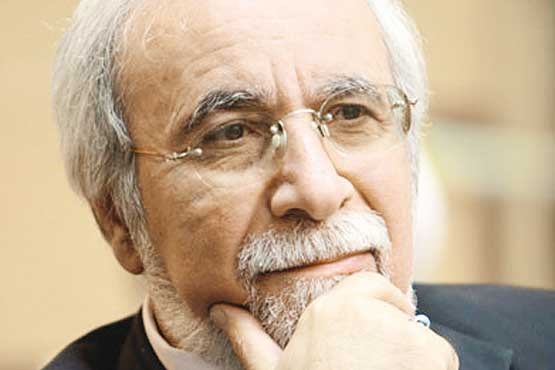Will recent regional developments, particularly the liberation of Syria’s Aleppo and imminent recapture of Iraq’s Mosul, force Saudi Arabia to change its policies towards Iran? Can Oman’s mediation between Tehran and Riyadh contribute to the reduction of the two countries’ tensions? Will Saudi Arabia respond to Iran’s demands?
Nasl-e Farda newspaper has sought answers to these questions in an interview with Sabah Zanganeh, a Middle East expert and a former Iranian envoy to the Organization of Islamic Cooperation (OIC).
He believes anything is possible in politics.
“In case, despite its will, Saudi Arabia becomes convinced that these developments are truly taking place, we will witness a change in the Al Saud’s approach to Iran.”
Zanganeh also maintains that Muscat has always favoured regional cooperation in serious crises.
“Therefore, it is quite probable that Oman would help adjust Saudi Arabia’s policies towards Iran. The Oman Sultanate can act as a link between Iran and other members of the [Persian] Gulf Cooperation Council ([P]GCC). Muscat has a high potential for acting as a mediator.”
The full text of the interview follow:
Q: Can regional developments, particularly the Syrian army regaining full control over Aleppo and the imminent liberation of Mosul, enforce Saudi Arabia to stop pursuing its tension-creating policies towards Iran?
A: Anything is possible in politics. In case, despite its will, Saudi Arabia becomes convinced that these developments are truly occurring, we will witness a change in the Al Saud’s approach to Iran. This is while Riyadh has failed to achieve most of its regional targets since the onset of Syrian crisis and Iraqi developments. This might persuade the Al Saud to review its policies.
Nevertheless, this alteration is only expected in case Saudi officials and statesmen primarily believe in political rationality. In case they react towards regional countries and developments based on their baseless demands, the present behaviour and policies will be pursued until the country’s treasury is fully empty. Only then, they would realize that their adopted policies had been ineffective, for, despite spending lavishly, they have only aroused neighbouring countries’ animosity towards themselves and have failed to achieve their goals.
Q: How do you evaluate the Oman Sultanate’s recent move to join the Saudi-led so-called anti-terrorism coalition?
A: Oman and all other [P]GCC countries highly fear the expansion of terrorism in their territories. Thus, they are required to propagate that they are against terrorists. Nevertheless, Oman’s accession to the coalition can have other dimensions. Primarily, it can be a quid pro quo. Oman is assisting Saudi Arabia to publicize the coalition, and in return expects other favours from the country such as financial aid. In case Oman had not become a member of the coalition, it could have expected Saudi Arabia’s intrigues against its government. In fact Muscat’s accession to the coalition was an effort to protect itself against such policies of the Al Saud. Oman’s membership will not lead to an increase in Riyadh’s power. The move is also aimed at controlling Saudi Arabia’s militarism and belligerent strategies in the region.
Q: What would be the outcomes for Iran in case Muscat opts to maintain a distance with Tehran and works closer with Riyadh? Would it be better if Iran could prevent the fostering of such relations between the two countries?
A: Iran believes in other countries’ independence and freewill and holds that any state can pursue its own favoured policies. Iran has no problem with other nations’ anti-terrorism slogans and approves of efforts to combat terrorism. Such moves and measures are in line with Iran’s goals.
Tehran seriously believes in fighting terrorist groups and acts. It will be unlikely that Muscat’s decision to fight terrorism would lead to any negative consequences for Iran.
Q: Can Oman act as an intermediary between Iran and Saudi Arabia to ease their tensions given the country’s effective role in helping Washington and Tehran settle some of their differences over the latter’s peaceful nuclear program?
A: Omani officials’ consultations with their Saudi counterparts can, to some extent, change the latter’s political attitude towards Iran and push them towards expanded regional cooperation. Oman has always been Saudi Arabia’s advisor in regional issues. Sometimes, the Al Saud takes Muscat’s advices and sometimes it does not.
Nevertheless, Oman has always favoured regional cooperation in serious crises. It is likely that it would convince Saudi Arabia to revise its policies towards Iran. The Oman Sultanate can act as a link between Iran and other members of the [P]GCC. Although Riyadh is doing its best to maintain pressure on Iran using all of its tools and diplomatic levers, Muscat has a high potential for acting as a mediator.
Q: Is it possible that Saudi Arabia gives in to Iran’s demands and change its policies and strategies towards the country?
It is highly likely in view of the situation in the region and Saudi Arabia’s financial condition. Most people in regional countries hold Saudi Arabia responsible for the destructions, bloodshed, wars and promotion of terrorism in the region. Alteration of policies seems inevitable for Riyadh in case the Al Saud seeks to improve its tarnished image.
